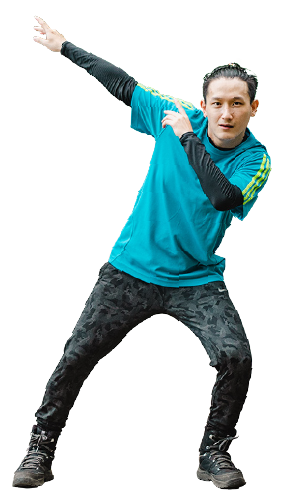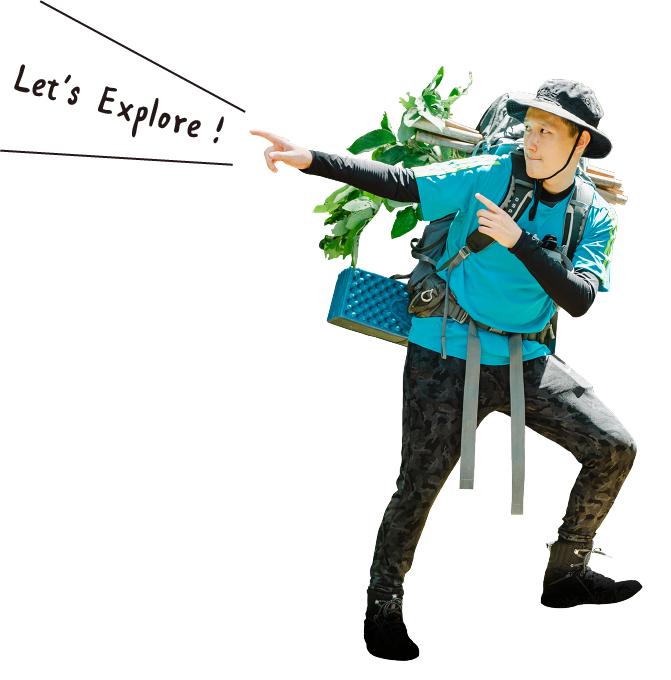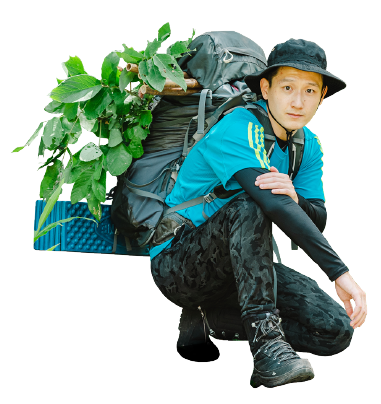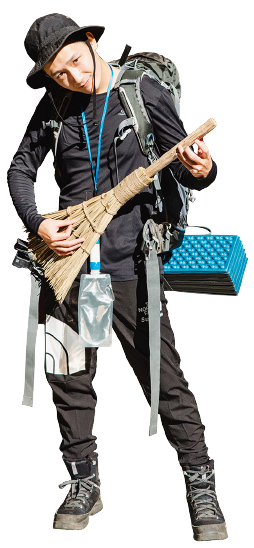
Lowking Hana
Truku from Chongde in Hualien
Nominated as Best Indigenous Singer for 32nd Golden Melody Award
Emerging Indigenous R&B Singer
All sunshine and optimism

Accidentally joined the Ngasal Maku in university, an indigenous student club, and was exposed to various indigenous cultures in abundance. The first thing I learned was the “age class” of the Amis people. I once heard an Amis friend say, “people in the same age class are like real brothers.” I felt then that the Amis know what solidarity means, whereas the Truku is all about the family, in the case of a difference in opinion, we listen to our elder ones in the family. I then Iearned the Amis songs and dances, and found that they often dance holding hands with each other, which is very different from the Truku dance, we tend to mimic the animal movements more, which probably has to do with the fact that we lived in the mountains. Observing the features of different indigenous people from their dance moves, I noticed that the Amis are more about the entire community whereas we Truku are more about the family or individuals, and we’re probably more attracted to heroism (LOL).
Later, I learned about the Paiwan culture, and the nobility structure that was specific to them was surprising to me. It is hard for me to imagine that it is a status you are born into and that difference in one’s status can directly make an impact on one’s clothing. One of my impressions of the Paiwan is its “extravagance”. Despite being mainly black, the glazed beads on the traditional clothing and feather dressing on the head are all very extravagant, and the women’s heels are as high as they can be. The Paiwan is without a doubt a romantic people with countless weddings and even the tradition of carrying the wood of love is preserved.
 When it comes to introducing the features of the Truku people, the first thing that comes to my mind is “swift and fierce”. From the literature review, we sense the fierceness of our people, take the well-known historic events such as the Wushe Incident and the heroic Truku War, for example, you see us both fierce and gentle. Pgagu, the head-hunting flute, is a traditional music instrument and a ritual item of the Truku. After the head of the enemy is brought home and hung outside the family house, the Truku hunter will play a song on the head-hunting flute to mourn the dead and show his gratitude: we were once enemies, but you have honored my family, so now please rest in peace here. Such romanticism is incomprehensible to the contemporary world, but I am so often deeply attracted. Indigenous peoples hold nature in gratitude and awe, hence the rules to follow when entering the mountains. rituals to pray for safety, and taboos to avoid. For example, our elders used to rely on Psisil, bird fortune-telling, before going into the mountains, and I wonder if the Bunun people have similar customs.
When it comes to introducing the features of the Truku people, the first thing that comes to my mind is “swift and fierce”. From the literature review, we sense the fierceness of our people, take the well-known historic events such as the Wushe Incident and the heroic Truku War, for example, you see us both fierce and gentle. Pgagu, the head-hunting flute, is a traditional music instrument and a ritual item of the Truku. After the head of the enemy is brought home and hung outside the family house, the Truku hunter will play a song on the head-hunting flute to mourn the dead and show his gratitude: we were once enemies, but you have honored my family, so now please rest in peace here. Such romanticism is incomprehensible to the contemporary world, but I am so often deeply attracted. Indigenous peoples hold nature in gratitude and awe, hence the rules to follow when entering the mountains. rituals to pray for safety, and taboos to avoid. For example, our elders used to rely on Psisil, bird fortune-telling, before going into the mountains, and I wonder if the Bunun people have similar customs. 
I am both nervous and excited about this journey because I don’t have much experience of being in the mountains, but I can hike, no problem there. It is a rare opportunity to spend time in the mountains with the elder ones, I consider myself lucky and feel very grateful that the elders are willing to share their life experiences with us. The Truku and Bunun people are both mountain peoples. This trip will, for one, make up for my lack of experience being in the mountains, as well as allowing me to see if the Bunun see the mountains in a different way compared to us. But whatever the case, it will no doubt be challenging for me to adapt to life in the mountain as someone from the city.




